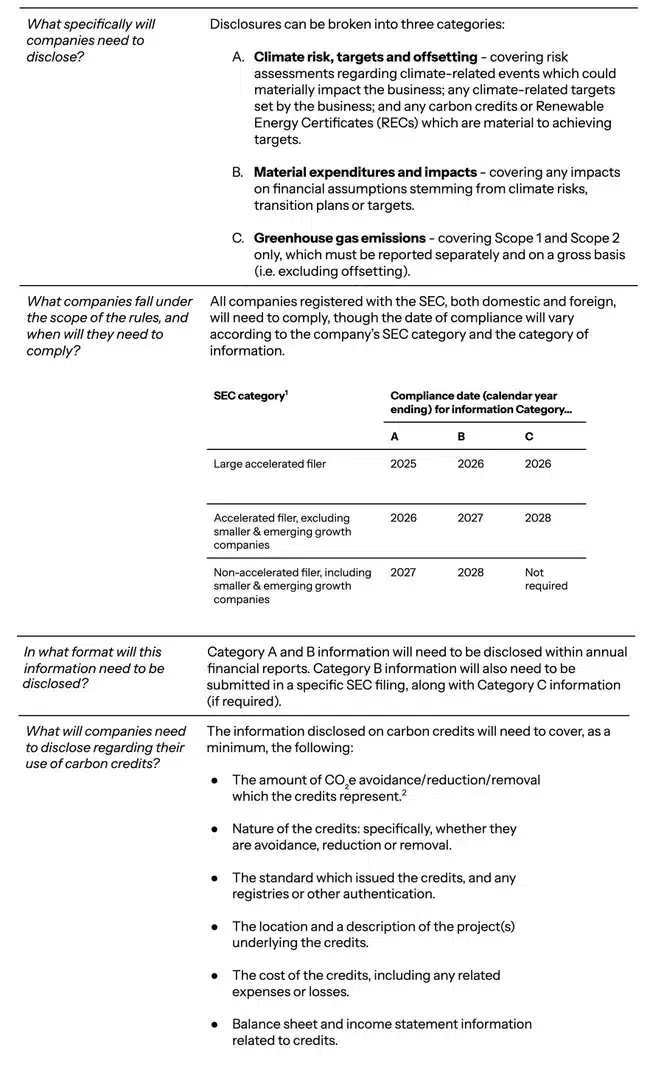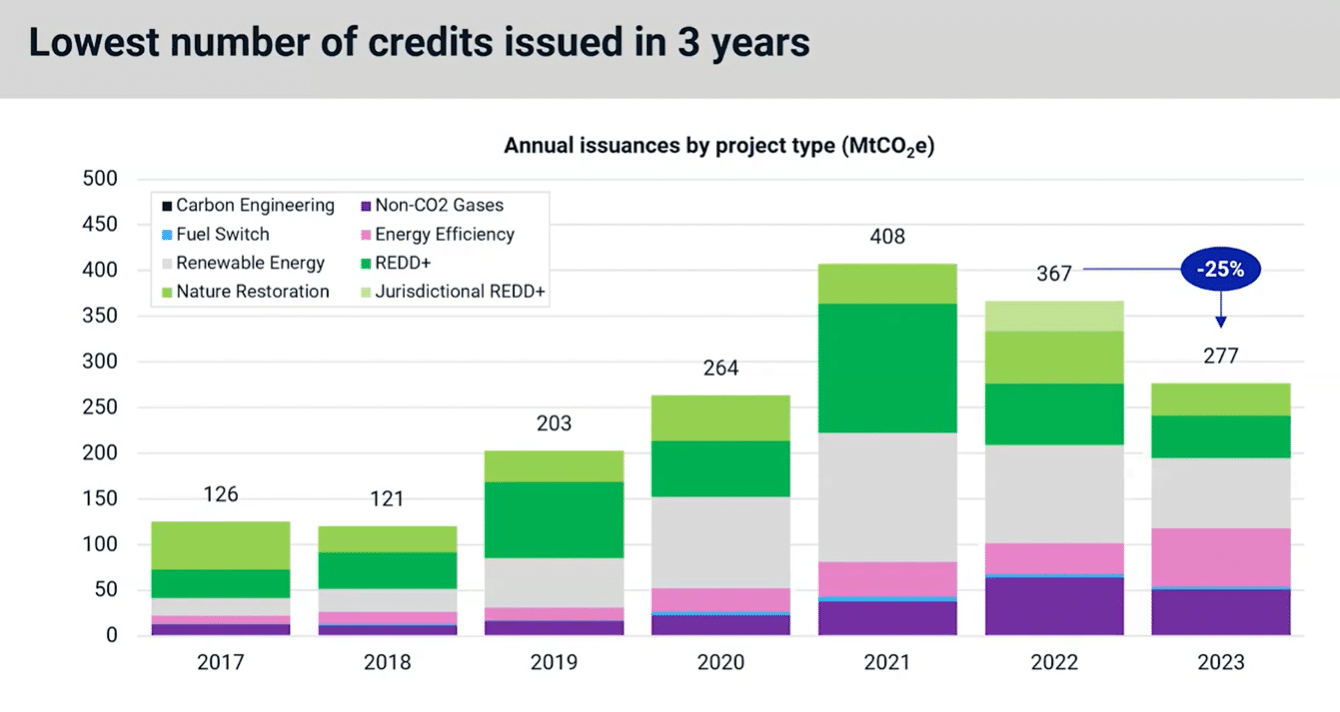Multiple private equity firms have recently entered the carbon credit market, capitalizing on the rising demand for high-quality credits. This significant market development is amid expectations of enhanced transparency from the US Securities and Exchange Commission (SEC)’s new disclosure regulations.
Seizing Opportunity Amidst Regulatory Changes
The recent final rules issued by the SEC mandate companies to disclose climate-related information, including the use of carbon credits. While the rules represent a scaled-back version of the initial proposal, notably excluding Scope 3 emissions, they still mark a significant milestone by requiring many of the world’s largest businesses to disclose their emissions and carbon credit usage.
Key players in this emerging trend include:
- Stafford Capital Partners: the London-based firm aims to raise $1 billion for a fund dedicated to investing in forest projects to generate around 30 million carbon offsets.
- Bain Capital: the company recently provided backing to Terra Natural Capital, an investment firm specializing in financing offset-generating projects like mangrove forest planting and restoration.
- Kimmeridge Energy Management: the New York-based firm pledged up to $200 million to forest manager Chestnut Carbon about two years ago. Chestnut Carbon focuses on reforestation projects.
One aspect of the rules that remains ambiguous is the definition of ‘materiality.’ Specifically, companies can adopt a ‘maximum transparency’ approach by disclosing all retired carbon credits within a reporting period.
Or they may opt for a more selective approach by disclosing only those credits deemed material to specific climate-related goals. This ambiguity will persist until the first wave of disclosures under the rules is observed.
SEC Climate Disclosure Rules FAQs

Moreover, the rules could prompt companies to go beyond disclosure and include climate-related assets and liabilities on their balance sheets. This is good news because it can help internalize the negative externalities associated with their emissions.
This internal carbon pricing mechanism is anticipated to drive companies to intensify their efforts towards decarbonization within their value chains and offset residual emissions through purchasing carbon credits.
From Skepticism to Sustainable Impact
Recent research by Ecosystem Marketplace’s Forest Trends suggests that companies purchasing carbon credits reduce their emissions faster than their peers. For instance, they are investing 3x more in emissions reductions within their own value chains. Analysts see this as an indicator of the potential efficacy of carbon credit utilization in accelerating climate action.
The carbon market is often met with skepticism due to greenwashing claims against companies participating in it. For instance, a class-action lawsuit against Delta Air Lines in California alleged that the carrier overstated its “carbon neutrality” based on potentially questionable offsets.
Some legal experts highlighted a “crisis of confidence” in the quality of voluntary carbon credits from emission reduction projects.
In response to these concerns, some firms, like Bregal Investments in London, have supported developers of carbon-insetting projects. These projects aim to reduce emissions across companies’ supply chains, particularly in the agricultural sector.
In Europe, where the largest carbon-trading system exists, new sustainability-reporting rules mandate businesses to disclose greenhouse gas emissions across their supply chains or by customers using their products, known as scope 3 emissions.
Concerns about the reliability of carbon credits raised doubts about the effectiveness of these projects generating the credits. This is where the new reporting requirements by the SEC would bring greater transparency to the market.
Shaping the Future of Carbon Credit Trading
The new SEC rules will subject carbon credits, also known as carbon offsets when used to compensate for a company’s carbon emissions, to additional scrutiny. Thus, it will drive demand for high-quality offsets.
In the case of private equity firms, some face legal challenges and a temporary suspension of enforcement by the US appeals court. Despite this, these businesses still see potential in meeting the unmet demand for high-quality credits with verifiable mitigation benefits.
Last year saw a decline in the number of credits issued to 277, the lowest in 3 years after dropping to 25% year-on-year, according to an MSCI report.
However, despite the shrinking supply, the average price dropped by 13% to $6/credit in the third quarter of 2023. This underscores the need for greater transparency and quality assurance in the carbon credit market.
While the SEC initially proposed rules that require companies to report scope 3 emissions, this provision was dropped from the final version due to concerns about compliance costs and difficulty. However, legal experts believe that this decision is unlikely to deter companies from their efforts to reduce scope 3 emissions.
Other jurisdictions, including California, Illinois, New York, Singapore, and Australia, are also adopting or proposing climate-related disclosure rules that include scope 3 emissions.
California, for example, passed a law last year mandating businesses to report both direct and indirect emissions, including scope 3. As a result, US public companies may still be subject to similar disclosure requirements from various regulators worldwide, despite the SEC’s decision.


